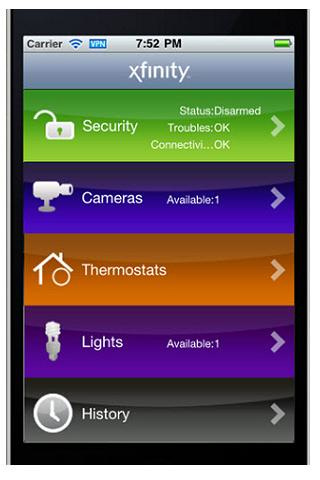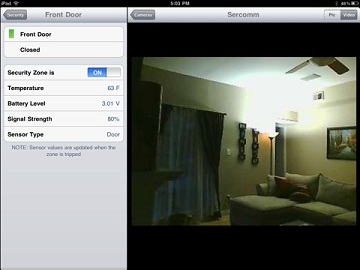Comcast Scales Up Home Security Push
The smarter way to stay on top of the multichannel video marketplace. Sign up below.
You are now subscribed
Your newsletter sign-up was successful
After offering home-security service in Houston for about a year, Comcast is expanding Xfinity Home Security into six additional U.S. market areas as it looks to eat into the $8 billion category.
The Xfinity Home Security service provides traditional home security features, like police and fire alarm protection with 24-hour professional monitoring, alongside home-automation capabilities, such as the ability to adjust digital thermostats, turn lights on or off and watch live streaming video from wireless cameras while away from home.
Comcast first introduced the service in Houston in mid-2010 and is now rolling it out in parts of Philadelphia, Portland, Ore., Jacksonville, Fla., Sarasota/Naples, Fla., Chattanooga, Tenn., and Nashville, Tenn. The MSO said it will bring the home-security offering to additional markets on a rolling basis.

"We think it's a natural integration with our other products," said Mitch Bowling, Comcast Cable senior vice president and general manager of new businesses. "The reason we're doing this now is, the technology capabilities have just recently become something that isn't a custom install."
Home security is Comcast's "fourth anchor product," Bowling said, though he added that the cable operator does not intend to position home security as part of a "quadruple play."
Comcast will use a third-party alarm-monitoring provider, COPS Monitoring, based in Williamstown, N.J., to handle emergency dispatch.
The Xfinity Home Security service is based on the home-automation platform from iControl Networks, which merged with competitor uControl in November 2010. The vendor's investors include Comcast, ADT, Cisco Systems, GE Security, Intel Capital, Kleiner Perkins Caufield and Byers, and Charles River Ventures.
The smarter way to stay on top of the multichannel video marketplace. Sign up below.
Comcast is selling the Xfinity Home Security Preferred Package starting at $39.95 per month. That includes a touch-screen control and information panel; a wireless keypad for arming/disarming the system; four window and door sensors; a motion detector; a keychain remote; and cellular and battery backup.
A Basic package is available for $29.95 monthly, which includes just
two window/door sensors and doesn't provide advanced features and
options such as cameras, thermostats and lighting control.
For the initial market launches, Comcast is waiving the activation fee but customers must pay an installation charge of $199 (a discount compared with $300 regularly).
The free Xfinity Security app for iPhone and iPad, available through Apple's iTunes App Store, lets customers access many of the features of the service remotely, including live video streaming.

Customers can create personalized settings to provide real-time e-mail or text alerts based on events, such as when doors open or close or when motion detectors report activity occurring inside or outside of the home.
The service's touch-screen control panel provides a central place to manage the Xfinity Home Security devices and includes a menu of widgets that provide weather, news, traffic, and sports scores.
Another benefit, according to Comcast: Xfinity Home Security customers are eligible to receive up to a 20% discount on their homeowners' insurance.
The service requires a three-year minimum-term agreement at $39.95 per month for monitoring service. Customers are subject to early-termination fees of 75% of the balance of the contract (implemented as $100 reduction per quarter in the ETF charge, starting at $1,100).
The home-security market in the U.S. represents about $8 billion in service revenue annually, according to Parks Associates.
"The smart-home concept is coming back," Parks director of home systems research Bill Ablondi said. "But it's going to take a while for cable companies to build awareness. Entertainment sells itself in some ways, but security requires more of a sales process -- and not everybody is in the market for home security."
Bowling said Comcast will engage the "full complement" of marketing channels for Xfinity Home Security, including direct mail, e-mail, radio and TV.
